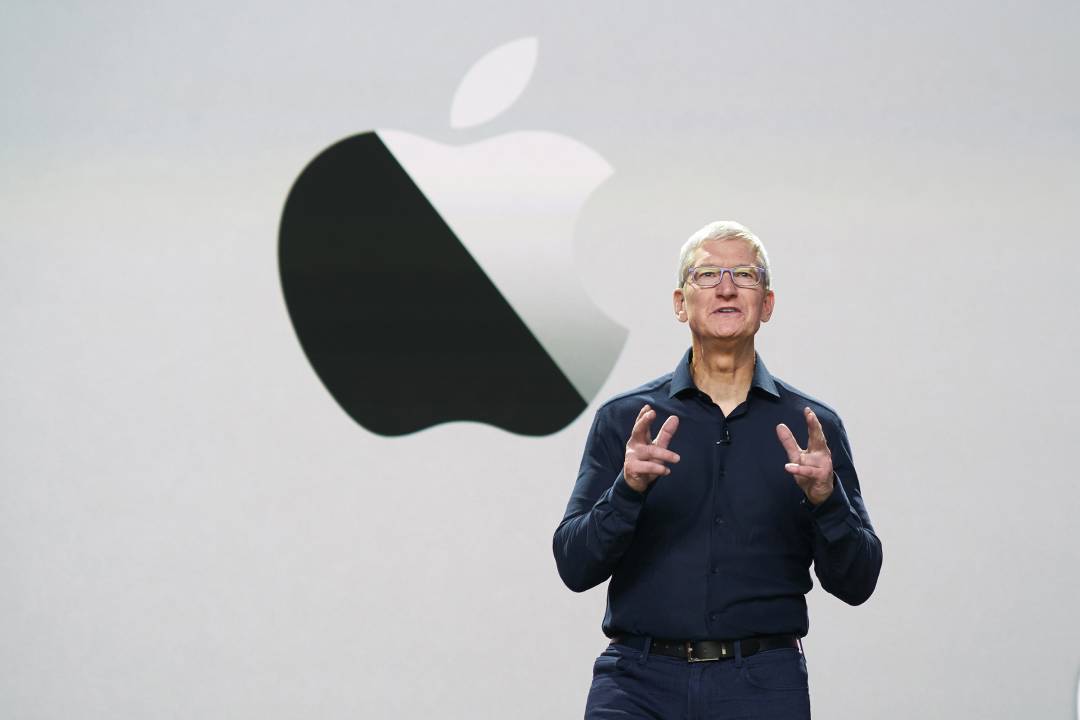

Everyone’s favourite fruit stand is set to have a pretty interesting results call in the next few hours, after a California court issued a ruling that may see its river of gold from the App Store start to dry up.
Everyone has a smartphone in their pocket these days, and on those smartphones are a range of free and paid apps. One such app has been causing Apple a huge headache over the last few years, however, and that’s the popular free-to-play game, Fortnite.
The game might not cost anything to purchase upfront (known as "free-to-play"), but the sale of in-game cosmetic items has propelled its developer - Epic Games - to become one of the most profitable game studios in the world. It’s estimated that these in-game cosmetics saw the Epic Games business bring in over US$5.5 billion of revenue in 2024.
One of Epic’s strategies to grow that revenue model has been to make the game available on every platform. Doesn’t matter if you have an Xbox, PlayStation, phone or tablet, Epic can (and probably does) put Fortnite on it. Except - for the last few years at least - for Apple’s iPhone and iPad devices.
The court case between Epic Games and Apple has gone on for years before the California courts.
Apple removed Fortnite from the App Store in 2020, saying the game violated its Terms of Service - specifically, the so-called “Anti-Steering Policy”.
You see, Apple likes to keep in-app purchases inside the App Store. Aside from other benefits Apple touts of keeping a "walled garden" approach, it also sees Cupertino split the revenue of an app or in-app purchase 30/70. 30% goes to Apple, 70% goes to developers.
To dodge the revenue haircut when it first hit the App Store, Epic instead steered users to its website to purchase in-game currency, denying Apple the revenue it had hoped to score from one of the world’s most popular and profitable games.
Apple subsequently removed the game from the store. Epic sued, and the legal/tech bro battle royale was on.
Today, the US District Court for the Northern District of California issued a final ruling that could threaten Apple’s App Store revenues long-term. Basically, the court ruled that Apple’s anti-steering policy is unlawful.
The court ordered Apple to lift its restrictions and allow developers to include “buttons, external links, or other calls to action that direct customers to purchasing mechanisms, in addition to In-App Purchasing” .
In her ruling, Judge Yvonne Gonzalez Rogers described Apple’s past anti-steering conduct as “anti-competitive and a violation of California’s Unfair Competition Law”. Apple had requested a delay to comply with the injunction. That request was denied.
In practical terms, developers can now steer users toward alternative payment methods- ones that often don’t carry Apple’s 30% commission.
For years, Apple has been shifting its growth story away from just hardware and towards high-margin services. These include everything from Apple Music and iCloud to Apple TV+, Apple News, and of course, the App Store.
Apple doesn’t break out revenue for each service, but analyst estimates point to just how critical the App Store has become. In 2024 alone, Apple’s Services division generated nearly US$100 billion of revenue. Of that, Trefis estimates that the App Store accounted for US$31.7 billion. This would make it by far the most profitable vertical in the entire Services portfolio.
To put that in perspective: if the App Store were a standalone company, it would rank among the top 350 global companies by revenue. It would also be generating nearly US$10 billion more than Telstra, Qantas or the Commonwealth Bank did last year.
That’s the scale of what’s at risk. Apple’s control over the flow of digital payments inside its ecosystem has become not just a business model, but a revenue engine that dwarfs entire industries.
The court’s order may not dismantle that engine, but it clearly opens the gate for developers, and the market has immediately sat up to attention.
Investors are weighing the potential fallout. While Apple can still charge a commission on in-app purchases made within its system, it no longer has the ability to force developers to use it. In effect, the ruling breaks Apple’s closed-loop monetisation model.
Developers of large-scale apps- think Spotify, Netflix or Fortnite- may now opt to move more of their transactions off-platform. That could pressure Apple’s high-margin Services revenue, which has become a key engine of growth as iPhone sales mature.
It also raises operational and competitive questions. Will Apple allow developers to promote off-app purchases anywhere inside their apps? Will it introduce new fees or friction to slow adoption?
The answer- for now- is maybe not, but the risk is real. The ruling doesn’t bar Apple from charging commission on purchases made within its ecosystem. And Apple has already signalled it may still seek a cut from transactions it indirectly enables.
But this judgment sets a clear precedent. If major developers start successfully diverting in-app purchases away from Apple’s platform, the impact could compound over time.
As Judge Rogers wrote:
“Apple has chosen to create a walled garden, and charge a toll for entry. That is not inherently illegal. But it must play by the rules- rules that prevent anti-competitive behaviour”. Stay tuned for what is likely to be quite an investor call on 2 May (Australian time).
Subscribe to The Switzer Report and get exclusive access to market commentary, stock ideas, and weekly video interviews with Australia’s leading investors and fund managers—before they hit YouTube.
Plus, join our live Boom, Doom & Zoom sessions where Peter Switzer and Paul Rickard answer your questions in real time.
Thousands of investors stay ahead of the market with The Switzer Report. You can too.